Our #1 Retirement Haven In Europe
The 2026 Overseas Retirement Index is hot-off-the-presses. If you’re an Overseas Living Letter subscriber the full 168-page report is already...
Top Destinations:
Whether you’re looking for fun and sun, a peaceful retirement, or the chance to earn some extra income, you’ve got a real world of opportunity open to you… In short, we’ve done our best to narrow down your best options, but only you can decide the right country for you.
Best For:
How Much Will It Cost You To Live Overseas?
The only honest answer is, we have no idea. And neither does anyone else. The only one who can answer that question is you. Here’s the most important thing to understand about budgeting your new life overseas…
Follow Us:
Upcoming Events
Live and Invest In Panama Conference
Live And Invest In Greece Workshop
Live And Invest In Portugal Conference
PANAMA CITY, PANAMA
Jan. 21-23, 2026
VIRTUAL
Feb. 19, 2026
LISBON, PORTUGAL
Mar. 25-27, 2026
Contact Our Events Team
Reach us with your questions by email at: events@liveandinvestoverseas.com
Unlock The World
Overseas Havens Reports
Conference Kits
Lahardan Books
Our Customer Service team is here to assist with any questions or concerns CustomerService@LiveandInvestOverseas.com
Top Destinations:
Whether you’re looking for fun and sun, a peaceful retirement, or the chance to earn some extra income, you’ve got a real world of opportunity open to you… In short, we’ve done our best to narrow down your best options, but only you can decide the right country for you.
Best For:
How Much Will It Cost You To Live Overseas?
The only honest answer is, we have no idea. And neither does anyone else. The only one who can answer that question is you. Here’s the most important thing to understand about budgeting your new life overseas…
Follow Us:
Upcoming Events
Live and Invest In Panama Conference
Live And Invest In Greece Workshop
Live And Invest In Portugal Conference
PANAMA CITY, PANAMA
Jan. 21-23, 2026
VIRTUAL
Feb. 19, 2026
LISBON, PORTUGAL
Mar. 25-27, 2026
Contact Our Events Team
Reach us with your questions by email at: events@liveandinvestoverseas.com
Unlock The World
Overseas Havens Reports
Conference Kits
Lahardan Books
Our Customer Service team is here to assist with any questions or concerns CustomerService@LiveandInvestOverseas.com
PORTUGAL WORLD'S #1
RETIREMENT HAVEN

Simply sign up to receive the FREE daily e-letter, Overseas Opportunity Letter, plus our In Focus: Europe newsletter and we’ll immediately email you our editors’ latest research report… absolutely FREE
Home » Best Countries To Live, Invest, And Retire Overseas » Europe » Portugal » The Algarve, Portugal
The Algarve, Portugal—our all-time favorite retirement haven—offers 100 miles of dramatic Atlantic coastline, Blue Flag beaches, world-class golf, and more than 300 days of sunshine a year. In this guide, discover its expat lifestyle, affordable cost of living, healthcare, weather, and exactly how to get there and explore its most charming towns.
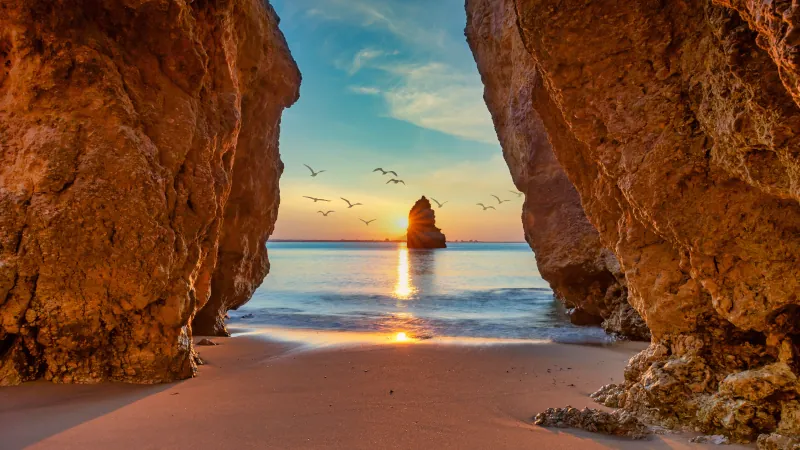
This Old World region on the Atlantic Ocean is the one of the best place in the world to retire that nobody’s talking about. The Algarve, Portugal has been named the best retirement spot for 3 years in a row.
This is a land of cobblestoned streets and whitewashed houses. With lace-patterned chimneys, surrounded everywhere by fig, olive, almond, and carob trees.
Also, The Algarve aoffers great weather, with 3,300 hours of sunshine per year. So, more sunny days than almost anywhere else in Europe.
The Algarve’s 100 miles of Atlantic coastline is full of jagged rock formations, lagoons… and extensive sandy beaches.
Many awarded coveted Blue Flags from the European Blue Flag Association. Also, the region boasts 42 golf courses in less than 100 miles.
It’s generally recognized as a top golfing destination in continental Europe… and the world.
Plus, The Algarve has a reputation as a top summer destination among European sun-seekers. Also, as a top winter retreat for those looking to escape Northern Europe’s coldest months.
Health care is international-standard in this part of the world. Hence medical tourism is a growing industry.
See our full guide to Portugal’s visas and residency options—so you can understand the main pathways, what typically qualifies you, and what to prepare before you apply.

Reviewed By Kathleen Peddicord
Kathleen is the Live and Invest Overseas Founding Publisher. She has more than 30 years of hands-on experience traveling, living, and buying property around the world.
Start Your New Overseas Life Today
We Value Your Privacy! We will not share your email address with anyone else, period.
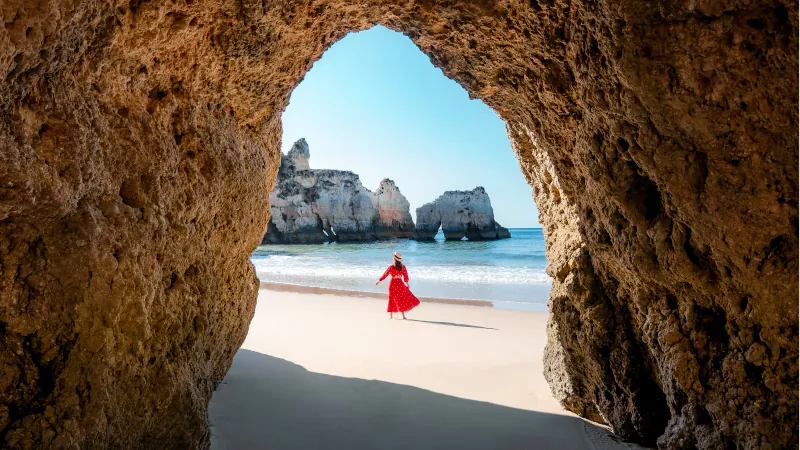
Faro Airport (FAO) is the main gateway to southern Portugal and the Algarve, offering flights to more than 70 destinations—mostly across Europe. The airport is small, modern, and easy to navigate, with English widely spoken among staff. Passenger numbers are highly seasonal, with very heavy traffic in summer and quieter months through late fall and winter.
Both budget airlines, such as Ryanair, and traditional carriers like British Airways operate frequent routes to Faro. Budget airlines often have long check-in queues, so it’s wise to arrive early. From Faro, travelers can also connect to Lisbon’s Humberto Delgado Airport, which offers a much wider selection of long-haul international flights.
Reaching the rest of the Algarve from the airport is straightforward. Faro Airport is not directly connected to public transport, so you’ll need a short taxi or private transfer into Faro to access regional train and bus services. From there, rail and bus routes run along the entire coast, from Lagos in the west to Vila Real de Santo António in the east.
The Algarve is served by two main roads:
Faro Airport recently underwent a €40-million upgrade to expand and modernize its facilities, now handling nearly 9 million passengers per year. It is also Portugal’s fastest-growing airport, with projected passenger growth of over 50% in the coming years as more travelers discover the Algarve.
Portugal’s Algarve is home to more than 100,000 resident foreign retirees. Algarve is a safe region, with very little crime and a laid-back lifestyle for expatriates.
This destination caters to families and retirees.
Due to the wide variety of cultural, nature-based, sporting, gastronomic, and other activities.
Algarve is the chosen retirement destination for more than 100,000 resident expats from around the world. Because it has Europe’s best beaches, best golf courses, and one of the friendliest folk.
You could join the many expats who gather for tennis at the Carvoeiro tennis club. Carvoeiro also has a well-stocked book exchange to trade in books they have read for new titles.
Many retired expatriates become involved in local community or charity work… there is no shortage of opportunities to contribute to society and make a real impact. While also help you integrate faster into local culture.
Making friends is easy, both with the locals and the expatriates.
To speak English is common in the country. Because of Portugal’s strong historic and cultural links with England. This is true throughout the entire country. But especially in the Algarve, Portugal… making this an ideal retirement spot.
The central Algarve, between Faro and Lagos has become popular in the last few years. Yet, eastern Algarve remains unspoiled, and all the better for it. Prices are lower and the life here is more traditional and authentic.
While not as lively as the central Algarve, it is ideal for anyone who enjoys the simple pleasures of good food. Also fantastic scenery and a relaxed pace of life.
Artists and small business owners love it here. They have been opening boutique businesses such as hotels, restaurants and craft stores.
Prices have been increasing. But are still well behind what you would pay in the more developed regions to the west.
This fishing port is close to Faro, about 10 minutes by car or train. It has become a favorite haunt of creative types and bohemians. This is a small town of approximately 40,000. What was once a quiet fishing village is now the busiest fishing port in the Algarve.
Needless to say, the fresh fish is delicious. Hence why there are some excellent, traditional, Portuguese fish restaurants.
As in Spain, people have a deep respect for the importance of lunch hours. Lunch time is between 1 pm and 3 pm. Keep a close eye on your watch as you will not get served outside these times.
Head down to the Ria Formosa for a stunning view across the marshes while you enjoy your meal.
Olhao is a short boat ride away from the Islands of Culatra Armona and Farol. The islands have plenty of natural beauty. All with different birds wading along the shore as well as tide pools to explore.
The water can be chilly, but is perfect for cooling off after time spent under the hot sun.
Olhao has a famous market which is only open on Saturdays. Located near to the harbor you will find fresh fruit and vegetables, local meats, cheeses… and alcohol alongside the ever present seafood. It’s a great way to take in Portuguese life. As well as a way to eat cheap, local, produce which will help your waistline and your bank balance.
If fresh seafood and produce is your thing, Olhao in Algarve, Portugal, will be meet your retirement standards.
Tavira is an historic town which bridges both banks of the River Gilao. The town dates back to pre-Roman times. Architectural influences include Islamic and Phoenician alongside Roman and traditional Portuguese.
The whitewashed buildings from these different styles give the town a unique feel. Once you step away from the waterfront, where fishermen sell their catch and boats come and go… the feel of the town is slow and sleepy.
Tavira castle tower provides a panoramic view across the town and is a great place to take photos. The anchor graveyard on Barril Beach is a tribute to the regions fishing history. It makes for an unusual and eerie photo opportunity.
Tavira has lots of churches to visit. This includes the medieval Church of Carmo and the Church of Santiago. Which was built on the site of an ancient mosque. The historic center was rebuilt after a huge earthquake in 1755.
The architecture here is different to a lot of the surrounding areas. If all this seems to be right on your lane, this town in Algarve, Portugal, is where your retirement could take place.
Evenings revolve around good food and good drink. Fine Cataplana restaurants serve Portuguese specialty seafood and rice dish.
The Portuguese cook this in a copper pan. The local wine is an excellent and very inexpensive accompaniment.
Vila Real de Santo Antonio is one of Portugal’s earliest examples of urban planning. Built after an earthquake in 1755. It also decimated the central square in Tavira.
Santo Antonio has long been strategically important to the Portuguese. This is because the river it is built on serves as the border with Spain.
The two countries have not always had the best relationship. Hence why strong fortresses in Santo Antonio were essential.
The town is especially popular with Portuguese tourists. And often overlooked by British and other European and American travelers. River cruises which sail up and down the Guadiana are a popular way of spending a few hours.
You can find plenty of boats for hire. Each with different package deals to best suit the experience you are looking for. Most journeys involve stops along the way at quiet villages where you can grab an ice cream or cold drink.
The most striking building is the Farol de Vila Real de Santo Antonia. Built in 1923, it is still functioning today. Visitors can climb the stairs (or take the lift) to the summit on a Wednesday afternoon. From there you’ll get to see a spectacular view across the bay and sparkling sea.
Vila Real de Santo Antonia has some pristine blue flag beaches and. Praia Verde and Praia de Monte Gordo are the pick of them.
The water here is much warmer than in other parts of Portugal. Because it’s close enough receive the warmer waters flowing from the Mediterranean.
Both beaches have lifeguards throughout the summer months as well as other amenities. Such as beach chairs and nearby restaurants and bathrooms. This place in Algarve, Portugal, is the perfect place for retirement.
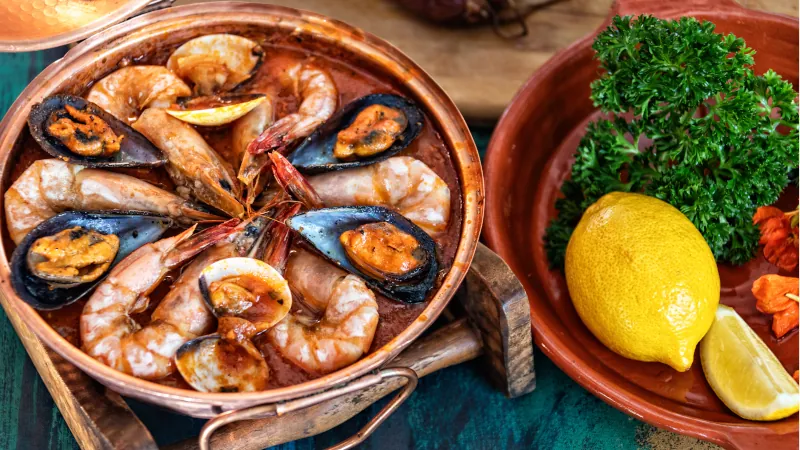
The Algarve is one of the most affordable and attractive retirement destinations in Western Europe. Portugal’s overall cost of living is roughly 30% lower than most countries on the Continent, and this southern region offers some of the best value in the country.
A retired couple can live modestly in the Algarve on a budget of around €1,099 per month, while a more comfortable, well-appointed lifestyle—including eating out regularly, a car, and leisure activities—can be enjoyed from €1,700–€1,800 per month.
Daily expenses remain surprisingly reasonable. Groceries, fresh produce, local markets, dining options, and public transportation are all budget-friendly compared to other European coastal regions. Rent is typically the largest variable, with prices increasing in popular seaside towns and decreasing the farther inland you go.
While the region as a whole is affordable, costs vary slightly between the Eastern Algarve and the Western Algarve.
The Eastern Algarve—running from Faro toward the Spanish border at the Guadiana River—remains one of the region’s best-kept secrets for retirees. It’s quieter than the west, more traditional in feel, and noticeably less tourist-driven for much of the year. That slower rhythm keeps daily costs down, and it’s one of the reasons long-term residents often describe this part of the Algarve as the place where your money stretches the furthest.
For budgeting purposes, a retired couple can live modestly—and quite comfortably—on about €1,100 to €1,200 per month, thanks to lower rents and a strong local market culture. Towns such as Tavira, Olhão, Cabanas, and Vila Real de Santo António offer a gentler pace alongside some of the most affordable housing on the southern coast.
The Western Algarve offers a different experience altogether. This is the stretch dotted with well-known coastal names—Lagos, Portimão, Alvor, Sagres—and it attracts a steady stream of visitors throughout the warmer months. That popularity shows up in the housing market, where rents and short-term accommodations tend to run higher than in the east.
Still, the western side remains affordable by Western European standards. Daily expenses such as groceries, transportation, and dining stay broadly in line with the rest of the region. It’s the housing market—especially in the beach and marina zones—where retirees will notice the biggest jump in cost compared with the eastern towns.
Rent: Higher in tourist hotspots (Lagos, Albufeira, Portimão); lower inland and in small towns.
Dining: Beachfront and marina areas are pricier; local tascas and market areas remain inexpensive.
Transportation: Affordable across the region; many retirees live car-free.
Groceries: Very reasonable everywhere, with fresh produce markets offering excellent value.
Utilities: Moderately priced; electricity is the priciest component.
| Expense | Monthly Costs | Notes |
|---|---|---|
| Mortgage | €550 | Average. |
| HOA Fees | €100 | |
| Property Taxes | €50 | |
| Transportation | €325 | For private car ownership, including insurance. |
| Gas | €50 | For cooking and hot water |
| Electricity | €100 | Including air conditioning. |
| Water | €25 | Not including a swimming pool. |
| Cell Phone | €20 | For a basic cell phone plan |
| Internet | €35 | Includes TV channels. |
| Cable TV | – | |
| Household Help | €90 | For a two-hour cleaning per week at €11.25 per hour. |
| Entertainment | €510 | Monthly cost for eating out twice a week: €420 (€45 to €60 per meal for two).
Monthly cost for drinks twice a week: €60 (€1.50 per beer; €5.50 per bottle of wine). Movie theatre trip twice a month: €30 (€7.50 per ticket). |
| Groceries | €450 | Monthly grocery haul for a couple. |
| Gym Membership | €80 | Basic membership two people. |
| Medical Appointment | €70 | For an appointment at a private clinic. |
| TOTAL | €2,455 |
| Expense | Monthly Costs | Notes |
|---|---|---|
| Rent | €850 | Cost of an apartment (70 square meters, two-bed/two-bath roughly) in a desirable location. |
| Transportation | €325 | For private car ownership, including insurance. |
| Gas | €50 | For heating and cooking. |
| Electricity | €100 | Including air conditioning. |
| Water | €25 | Not including a swimming pool. |
| Cell Phone | €20 | For a basic cell phone plan. |
| Internet | €35 | Includes TV channels. |
| Cable TV | – | |
| Household Help | €90 | For a two-hour cleaning per week at €11.25 per hour. |
| Entertainment | €510 | Monthly cost for eating out twice a week: €420 (€45 to €60 per meal for two).
Monthly cost for drinks twice a week: €60 (€1.50 per beer; €5.50 per bottle of wine). Movie theatre trip twice a month: €30 (€7.50 per ticket). |
| Groceries | €450 | Monthly grocery haul for a couple. |
| Gym Membership | €80 | Basic membership two people. |
| Medical Appointment | €70 | For an appointment at a private clinic. |
| TOTAL | €2,605 |
| Item | Cost | Notes |
|---|---|---|
| Rent | €500 | For a one-bedroom apartment in the cheapest part of town. |
| Transportation | €80 | Monthly bus ticket. |
| Gas | €35 | |
| Electricity | €65 | |
| Water | €25 | |
| Internet | €35 | |
| Cable TV | – | |
| Entertainment | €200 | Monthly cost for eating out twice a week: €200 (€25 per meal for two). |
| Groceries | €325 | All local-brand items only, shopping at markets and grocery stores. |
| Medical Appointment | €5.50 | For an appointment at a public health center. |
| TOTAL | €1,290.50 |

The Algarve—named from the Arabic al-gharb, meaning “the west”—regularly ranks among the top places to live in Europe. Portugal is one of the safest countries in the world, and the region is known for its superb beaches, warm climate, and more than 300 days of sunshine each year. Add world-class golf, friendly locals, affordable food, and reasonable property prices, and it’s easy to see why the Algarve appeals to retirees, families, singles, and investors alike.
There is a strong expat presence in nearly every Algarve town. Walk into any café or restaurant and you’re likely to meet people from all nationalities. Friendships form easily—either casually or through the many groups and clubs operating across the region. You’ll find nationality-specific associations, Portuguese-language classes, athletics and running clubs, football groups, golf societies, yoga and fitness classes, tennis clubs, and multiple walking groups that meet regularly.
Volunteering is another great way to connect. Several animal rescue centers need dog walkers, and Centre Algarve—a holiday center for children with special needs—also welcomes volunteers. For those interested in drama, the Algarveans Theatre Group stages productions in English throughout the year.
Book lovers will enjoy Carvoeiro’s well-stocked foreign-language secondhand bookshop.
The Algarve is a paradise for outdoor enthusiasts. Popular activities include birdwatching, running, hiking, kayaking, swimming, boating, sailing, diving, golf, tennis, and horseback riding. Fresh-produce markets operate in towns throughout the region, offering local and inexpensive foods.
Loulé hosts one of the region’s most popular Saturday markets, drawing visitors from across the Algarve for fresh foods, crafts, and daily essentials. Nearby, a gypsy market offers more of a bazaar atmosphere, with clothing, household goods, plants, and more.
For larger shopping options, Loulé also has the area’s only IKEA, a major shopping mall, and a large Leroy Merlin home-improvement store. In Vilamoura, the marina area offers more upscale shopping, yacht brokers, and designer stores—though you can still find casual cafés and beer joints among the luxury.
In Faro, the capital, you’ll find major car dealerships, a variety of grocery stores, and a mix of modern and historic shopping streets near the marina. As you move east, towns like Olhão remain more affordable and less discovered, with a charming waterfront, weekend concerts, and easy ferry access to nearby islands. Tavira, farther east, offers long beaches, island day trips, historic streets, and some of the most unspoiled scenery in the region.
The Algarve’s festival calendar is packed. The Silves Medieval Fair is one of the region’s largest events, lasting 10 days every summer, with music, costumes, theatre, and medieval entertainment in the historic setting of Silves. Carnival is another major highlight—especially in Loulé, where samba dancers, floats, music, and vibrant costumes fill the streets in one of the Algarve’s oldest and most vibrant celebrations.
Inland, Loulé also hosts significant cultural events, including a jazz festival and Festival Med, a three-day celebration of Mediterranean and world music featuring performances, food, art, crafts, poetry, cinema, and exhibitions spread throughout the town.
Lagoa is one of the Algarve’s cultural hubs. It’s home to a musical academy, cultural academy, an arts center, and even Portugal’s principal foreign-language newspaper, The Portugal News. The local musical academy hosts an active orchestra with musicians from age 8 to 65, and throughout the year you’ll find free open-air jazz and classical concerts—especially at Sitio das Fontes and the Lagoa Auditorium. The Arade Congress Centre also hosts major international events, from ballet performances to music festivals and conferences.
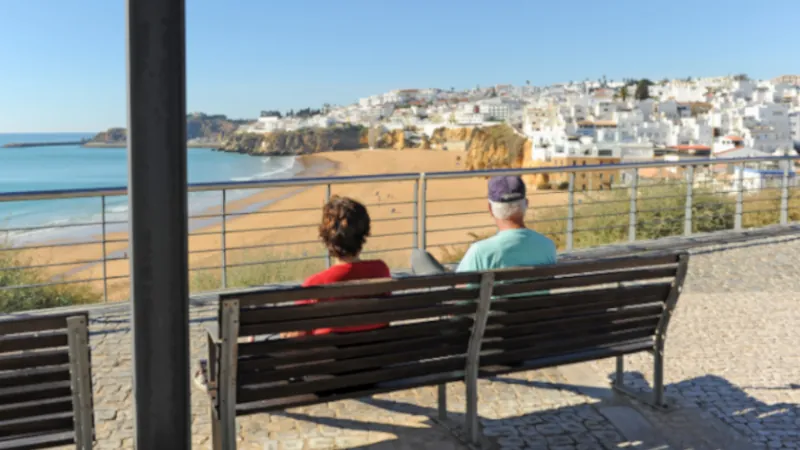
Portugal’s Algarve is home to more than 100,000 resident foreign retirees. The region is safe, has low crime rates, and offers a laid-back lifestyle for expatriates. It caters especially well to families and retirees thanks to its cultural, nature-based, sporting, and culinary activities.
You could join the many expats who gather for tennis at the Carvoeiro tennis club. Carvoeiro also has a well-stocked book exchange where expats trade books.
Many retired expatriates become involved in community or charity work. Several animal-rescue centers need dog walkers, and volunteering helps you integrate more quickly into local culture.
Making friends is easy, both with locals and expatriates. English is widely spoken throughout Portugal—especially in the Algarve—which makes everyday life easier for retirees.
The central Algarve, between Faro and Lagos, has become increasingly popular, yet the Eastern Algarve remains more unspoiled and traditional. Prices are lower and life here is quieter and more authentic. It’s ideal for anyone who enjoys beautiful scenery, good food, and a relaxed pace of life.
Artists and small business owners have been opening boutique hotels, restaurants, and craft stores. Prices have risen, but the cost of living is still below that of the more developed western region.
Olhão is a fishing port close to Faro, about 10 minutes by car or train. It has become popular with creative types and bohemians. Fresh fish is excellent here, and traditional Portuguese fish restaurants are plentiful.
Lunch hours are between 1 p.m. and 3 p.m., and most restaurants won’t serve outside those times. The Ria Formosa offers stunning views across the marshes, and ferries run to the nearby islands of Culatra, Armona, and Farol.
Olhão has a well-known Saturday market near the harbor, offering fresh produce, meats, cheeses, and seafood. It’s an excellent way to experience Portuguese life and buy inexpensive, local food.
Tavira is a historic town spanning both banks of the River Gilão. Influences from Islamic, Phoenician, Roman, and traditional Portuguese architecture give the town a unique feel. Away from the waterfront, the rhythm is slow and peaceful.
Tavira Castle offers panoramic views across the town. Barril Beach’s anchor graveyard is a tribute to the region’s fishing history. Tavira has many churches, including the Church of Carmo and the Church of Santiago.
Evenings center around good food and wine. Cataplana—a regional seafood specialty—is a highlight, and local wine is inexpensive.
Vila Real de Santo António is one of Portugal’s earliest examples of planned urban design, built after the 1755 earthquake. Its position on the Guadiana River—forming the border with Spain—has long made it strategically important.
River cruises along the Guadiana are popular, with stops at small villages for drinks or ice cream. The Farol de Vila Real de Santo António lighthouse, built in 1923, offers excellent views across the bay on open afternoons.
The town has pristine Blue Flag beaches such as Praia Verde and Praia de Monte Gordo. The water here is warmer than in other parts of Portugal thanks to Mediterranean influence, and the beaches have lifeguards and amenities in summer.
The Western Algarve is known for its dramatic coastline, beautiful beaches, soft golden sand, and striking limestone cliffs. Beyond the beaches, retirees enjoy easy access to nature via coastal paths, hiking trails, and scenic countryside.
The region is home to charming historical villages with white-washed cottages, cobbled streets, and a relaxed pace of life. Traditional arts and crafts, local markets, and small shops add to the area’s appeal.
Golf is a major draw, with some of Europe’s top championship courses offering spectacular sea views—an attractive lifestyle perk for many foreign retirees.
The Mediterranean-style diet, fresh organic produce, low pollution, and opportunities for daily outdoor activity contribute to the region’s reputation for healthy living.
Carvoeiro is a small but popular beach town with a beautiful coastline and family-friendly environment. Praia de Carvoeiro—voted Europe’s best beach in 2018—is at the town’s center, with several other beaches, such as Praia da Marinha, just a short drive away. Nearby family attractions include Slide & Splash water park and Zoomarine. The presence of an independent school in Lagoa makes the area appealing for multigenerational families.
Ferragudo remains one of the Algarve’s most picturesque fishing villages, with traditional cottages, narrow cobbled streets, and views across the water to Portimão. The village has two excellent beaches—Praia Pintadinho and Praia Grande—both popular with retirees and families. From the harbor, you can take boat trips up the Arade River to Silves or join dolphin-watching tours.
Alvor is a relaxed seaside town known for its long, sandy beach and walking paths along the dunes and estuary. The Ria de Alvor Nature Reserve offers boardwalk trails ideal for retirees who enjoy walking or birdwatching. Alvor has a variety of cafés and restaurants, from waterfront dining to traditional local eateries, and remains popular with expats and winter visitors.

Portugal ranks among the top countries in the world for healthcare, and the Algarve benefits from both public and private medical services. According to the World Health Organization, the country’s system ranks 12th out of 190, offering strong overall care at a fraction of U.S. medical costs.
Residents can access the public system (SNS) once they obtain residency, but most foreign retirees—especially from the U.S. and non-EU countries—choose to carry private health insurance for faster appointments, English-speaking doctors, and broader specialist options. Private coverage is also required for visa entry.
The Algarve’s public clinics and hospitals offer good medical care, but the region experiences seasonal strain from millions of visitors each year. Non-urgent appointments may require planning ahead, and specialist wait times can be long. Some clinics use a same-day triage system: you arrive early, explain your symptoms, and are seen that morning or given an afternoon appointment.
Private Health Care:
Most expats prefer private care due to:
Private hospitals don’t cover every specialist treatment, so some cases are still referred to the public system.
Private insurance plans typically cost €50–€120 per month, depending on age and coverage. Premiums increase after age 65, and over age 70 some providers limit new enrollment.
Locally favored options include:
Even without insurance, medical care is far more affordable than in the U.S. A real example from the Algarve: a newcomer’s ambulance ride cost nothing—a service that could exceed US$1,000 in major U.S. cities.
The Algarve has an excellent network of both public and private facilities:
Public hospitals:
Private hospitals & clinics:
Because the Algarve is compact, most towns are within 60–90 minutes of every major medical facility via the A22 motorway.
Dental services are widely available and reasonably priced:
Optical care can be more expensive:
Some expats travel to the U.K. or home country for eyewear if prices are significantly lower.
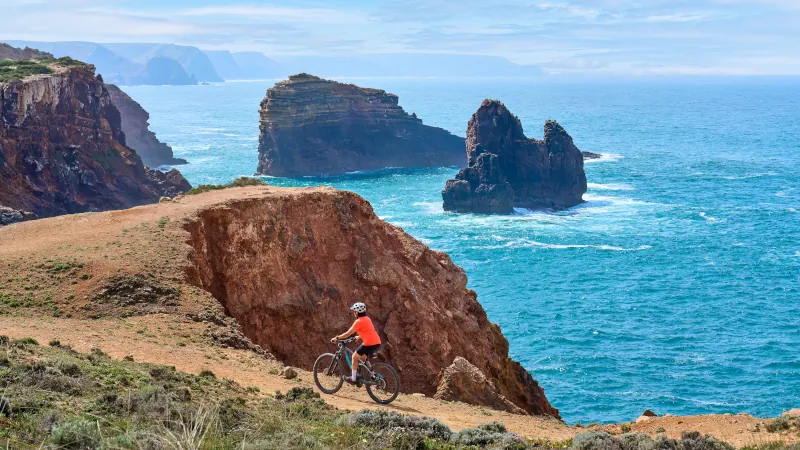
The Algarve has the best climate in Europe, meaning the most days of sun, and it also gains from prevailing winds. Between the water and the wind, this region is never unbearably hot and rarely humid.
Temperatures range between about 60°F and 90°F with humidity hovering around 80%. There are no hot or cold months here, but January and February are the coolest, July and August the warmest.

Reviewed By Kathleen Peddicord
Kathleen is the Live and Invest Overseas Founding Publisher. She has more than 30 years of hands-on experience traveling, living, and buying property around the world.
Start Your New Overseas Life Today
We Value Your Privacy! We will not share your email address with anyone else, period.
Despite being near the ocean, the cost of living in Portugal is, on average, 30% lower than in any other country in Europe. Plus, the southern region of Algarve in the country is our #1 choice for living in Europe—it also happens to be incredibly affordable…
The Algarve is in the Atlantic Ocean. It is considered one of the sunniest places in Europe.
Portugal and the Algarve in particular have enjoyed important infrastructure investments in recent years, specifically to do with the country’s highway network and airports.
The 2026 Overseas Retirement Index is hot-off-the-presses. If you’re an Overseas Living Letter subscriber the full 168-page report is already...
It was 1955. We lived on Long Island, NY… our home was an easy train ride away from Manhattan. In...
Thirty minutes from the south and west coasts of the Algarve is Monchique, an area of rolling hills, mountains, and...
In most Portuguese towns and cities, as soon as summer officially ends, the ice-cream carts disappear from sight. Make way...

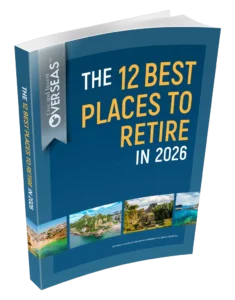
We Value Your Privacy! We will not share your email address with anyone else, period.
As seen in

Top Countries
Budgets
Affordable
Resources
Real Estate
Overseas Property Alert
How To Become Independently Wealthy And Fund The Lifestyle Of Your Dreams
Buying Real Estate For Cashflow
Discover tips and strategies used by global property investing veterans
Explore Our Latest Posts
Learn how to invest and purchase property abroad…
Conferences
Live and Invest In Panama Conference
Live And Invest In Greece Workshop
Live And Invest In Portugal Conference
Contact Our Events Team:
Toll-Free U.S. and Canada:
1 (888) 627 8834
From Outside North America:
1 (443) 599 1221
Working Hours
Monday – Friday 08:00 am – 17:00 pm EST.
Reach us with your questions by email at: events@liveandinvestoverseas.com
Store
Overseas Havens Reports
Conference Kits
Lahardan Books
Services
Free Report
FREE Report
The 12 Best Places to Retire in 2026

Simply sign up for our FREE daily Overseas Opportunity Letter, and we’ll immediately email you our editors’ latest research report… absolutely FREE
We Value Your Privacy! We will not share your email address with anyone else, period.
Follow Us:
© 2008 - Live and Invest Overseas - All Rights Reserved.
RETIRE OVERSEAS AND
LIVE LIKE ROYALTY
Sign up for FREE and learn how to live the good life on a modest budget, find bargain property, and more. Plus, check out our FREE report on the 12 BEST PLACES TO RETIRE.